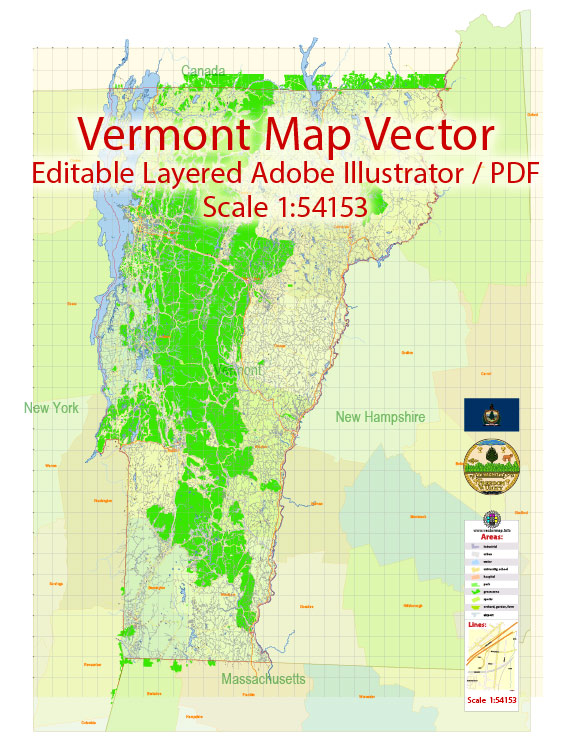Vermont is a small, picturesque state in the northeastern region of the United States. It is known for its natural beauty, with rolling hills, forests, and an abundance of lakes and rivers. Here’s a socio-economic description of Vermont:
- Population: As of my last knowledge update in January 2022, Vermont had a relatively small population of around 623,000 people. It is one of the least populous states in the U.S.
- Economy: Vermont’s economy is diverse, but it is primarily known for its agriculture, tourism, and manufacturing sectors. Dairy farming is a significant part of the state’s agricultural economy, and Vermont is famous for its high-quality dairy products, especially cheese and maple syrup. The state has also been increasingly focusing on technology and clean energy sectors.
- Income: Vermont has a relatively high median household income compared to the national average. It is often cited as one of the more affluent states in the U.S., but income inequality is still a concern.
- Employment: The state generally has a low unemployment rate, though the availability of jobs can vary by region. Some of the major industries that employ Vermonters include healthcare, education, tourism, and manufacturing.
- Education: Vermont places a strong emphasis on education, with a well-regarded public school system and a number of prestigious colleges and universities, including the University of Vermont.
- Healthcare: The state has a high quality of healthcare with several well-regarded hospitals and medical facilities. Access to healthcare is generally good, but rural areas may have limited medical resources.
- Tourism: Vermont is a popular tourist destination, especially during the fall foliage season. Visitors come for outdoor activities like skiing, hiking, and water sports, as well as cultural attractions and historical sites.
- Demographics: Vermont has a predominantly White population, but it has become more diverse in recent years. There are also small communities of African Americans, Asians, and Native Americans. The state is known for its welcoming and inclusive culture.
- Political Environment: Vermont is often considered one of the more progressive states in the U.S. It has a history of supporting liberal policies and politicians, and it was the first state to legalize same-sex marriage through legislative action.
- Environment: Vermont is renowned for its commitment to environmental conservation. The state places a strong emphasis on clean energy, organic farming, and protecting its natural resources. This focus on sustainability is deeply ingrained in Vermont’s culture and policies.
Please note that the socio-economic situation of any state can change over time due to various factors, and it’s always a good idea to refer to more recent sources for the latest information and statistics.


 Author: Kirill Shrayber, Ph.D. FRGS
Author: Kirill Shrayber, Ph.D. FRGS